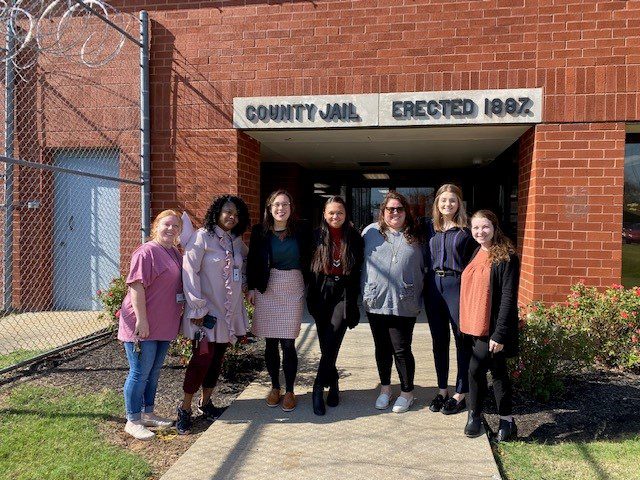Belmont College of Law will host its final expungement clinic of the year at Loaves and Fishes Soup Kitchen and Food Distribution Center in Clarksville on Saturday, Nov. 19. The Montgomery County clerk’s office will provide help to 50 pre-registered clients who have criminal records in Montgomery County. The Davidson County clerk’s office will also be present to help those who have not registered but have a criminal record in Davidson County.
The College of Law has led seven expungement clinics this year and partnered with Doors of Hope, Legal Aid Society of Middle Tennessee and the Cumberlands, The Next Door, Rutherford County Reentry Initiative, Cold Patrol, TN Supreme Court Access to Justice Initiative and the Tennessee Bar Association Young Lawyers Division.
“Participating in clinics reminds me of why I wanted to be an attorney in the first place: to help people during times of vulnerability,” law student and president for the Belmont Criminal Law Society Allyson Webb said. “In learning the law, we generally study cases and theory that we will use in practice. Although this provides the knowledge that we need to be successful, it eliminates the personal contact that personally motivates me to do this job. Clinics are beneficial because they allow one to see first-hand the impact you can have as a lawyer.”
Law students get real time, hands-on experience at the pro bono clinics. They pull criminal records and review expungement eligibility prior to the clinics, fill out court documents and assist clients with signature and filing procedures so that the petitions are ready to go before a judge.
Through expungement clinics the College of Law has provided another opportunity where experiential learning meets community service. The clinics have bolstered support around law student’s pro bono work and provided life-improving services to the community.
College of Law alumna Alexandra Rogers ‘18 is the Public Interest Coordinator for the College of Law who works directly to put on a variety of public interest events, including the expungement clinics.
“Getting expungements is so helpful,” Rogers said. “It touches lots of aspects of someone’s life. If their record is cleaned up, they can get better housing. They have access to more public benefits. They can get a better job. It touches a lot of areas that are important to poverty alleviation.”
The same-day resolutions produced by hosting expungement clinics help make a difference for people in Nashville who seek these services. The College of Law also provides clinics for legal advice, debt relief and wills.
Over $12,000 in legal services were donated from the clinic held at the Belmont Ministry Center on Oct. 21. Paperwork to expunge over 140 criminal charges was completed at the Rutherford County Adult Detention Center and Work Center on Nov. 4. Eight women in need were served at The Next Door and 28 expungement petitions were completed.
The Law Student for Justice Award is a state-wide award from the Tennessee Supreme Court for students who complete 50 or more hours of pro bono service upon graduation. Belmont College of Law also presents the Pro Bono Pledge Award and graduation chord to students who complete this amount of pro bono work during law school.
Forty-two of the 120 College of Law graduates in the May 2022 class completed the pro bono pledge, which is the highest number of students to receive pro bono work recognition from any graduating class. The entire class of 2022 logged over 7,000 hours of pro bono work during their time in law school. The number is expected to increase for 2023 graduates.



